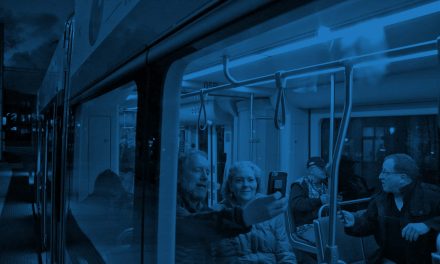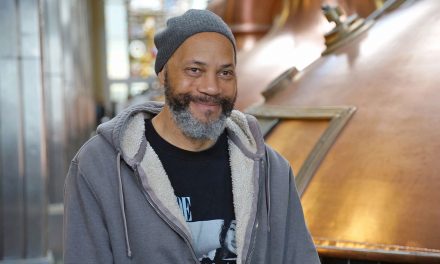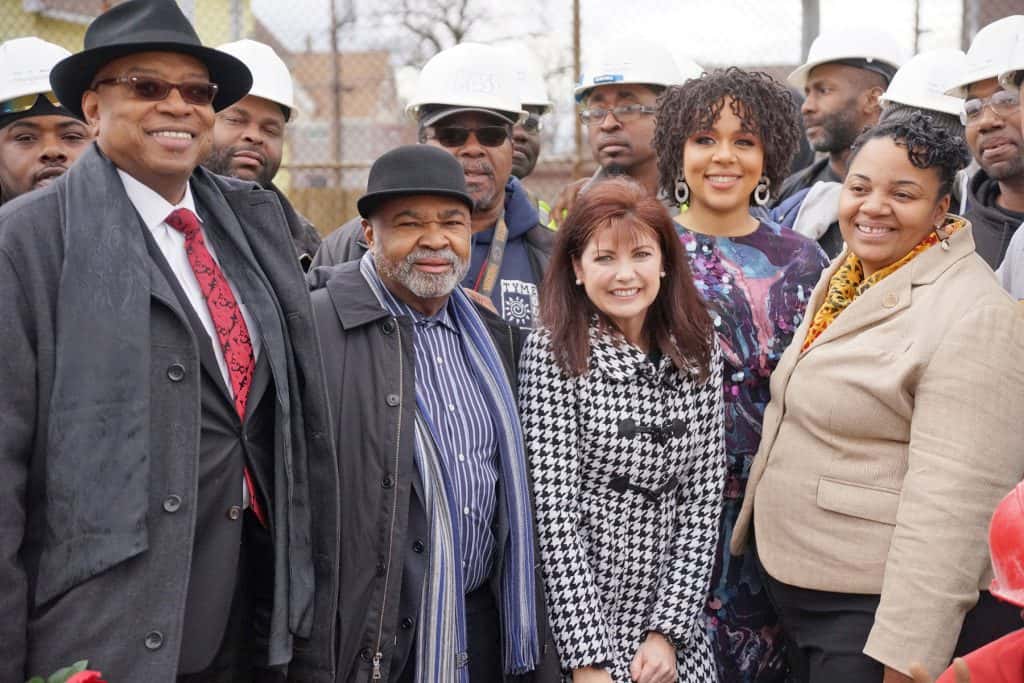
Following a demographic shift that is redefining the traditional image of the undergraduate classroom, a growing number of older adults, particularly those in their 30s and 40s, are returning to college to complete degrees they began years ago, or to pursue entirely new fields of study.
While the archetype of a college student often conjures images of late-teens and early-twenties learners stepping onto campus for the first time, today’s educational landscape is much more diverse. According to experts and education-focused organizations like EAB (formerly the Education Advisory Board), the motivations and circumstances driving older students back into the world of higher education are multifaceted. These individuals want flexible programs, career-relevant credentials, and supportive environments that recognize their unique challenges and aspirations.
CHANGING DEMOGRAPHICS IN HIGHER EDUCATION
The demographic makeup of college campuses — both physical and virtual — has shifted dramatically in recent years. Adult learners, defined broadly as those over the age of 24, have become one of the fastest-growing populations in higher education.
Many in their 30s or early 40s are turning to college programs not only to finish degrees they once set aside, but also to gain new skills demanded by a rapidly evolving job market. It is a trend that has been noted across the nation, as working adults seek credentials that will either stabilize their careers or help them pivot into entirely new industries.
According to EAB’s report on adult learners, those returning students are often juggling multiple responsibilities like full-time employment, parenthood, caregiving for aging relatives, or all of the above. They are looking for programs that cater to their complicated lives, offer tangible returns on their investments, and provide a clear pathway to career advancement.
In many cases, those learners already possess a wealth of professional and life experience. What they need from higher education is not a traditional, four-year residential experience, but rather a skill-building and credential-earning process that fits seamlessly into the lives they have already built.
WHY OLDER ADULTS GOING BACK TO SCHOOL
For adults aged 30 to 40, the decision to return to the classroom can stem from various personal and professional motivations:
- Career Advancement and Salary Growth: Many returning learners are professionals who have hit a ceiling in their career progression. They recognize that obtaining an advanced credential, such as a bachelor’s degree in a new field, a specialized certificate, or even a graduate-level qualification, Brostoff’scan make them more competitive, leading to promotions, raises, or the chance to move into leadership roles.
- Adapting to a Changing Job Market: Rapid technological change, automation, and shifts in industry demands mean that skills once considered cutting-edge may become obsolete over time. A 35-year-old who began their career in marketing a decade ago, for instance, might find that today’s positions require digital analytics, coding, or data visualization capabilities. Returning to college allows those professionals to update their skill sets, remain relevant, and safeguard their employability.
- Pursuing Long-Deferred Dreams: Many older adult learners left college in their youth for financial, personal, or family reasons. Years later, they feel a sense of unfinished business. Completing a degree can fulfill that long-held dream, bring a sense of personal accomplishment, and serve as an example for their own children. As EAB noted, adult learners value institutions that acknowledge their past experiences and help them integrate those experiences into a new academic journey.
- Career Transitions and New Passions: Another group of older returnees are mid-career professionals seeking entirely new directions. Perhaps after years in a particular industry, they have realized a different path would bring greater fulfillment. Enrolling in a degree-completion program or acquiring a new skill set can make that pivot possible. EAB’s research showed that when institutions meet the needs of adult learners, offering accelerated programs, flexible scheduling, and clear career pathways, those students were more likely to persist and graduate.
WHAT ADULT LEARNERS WANT FROM INSTITUTIONS
Colleges and universities are increasingly aware that adult learners are not simply “older versions” of traditional 18-year-old freshmen. They have distinct needs, constraints, and expectations. According to insights from EAB’s analysis of the adult education market, the following factors are particularly critical:
- Flexibility in Scheduling and Delivery: Adult learners often balance classes with full-time work and family commitments. Night classes, weekend sessions, and online coursework are essential. These students want to learn at their own pace, often preferring asynchronous options that allow them to study during non-traditional hours. The convenience of online platforms, with recorded lectures and digital resources available 24/7, can make the difference between dropping out and graduating.
- Credit for Prior Learning and Experience: Many adults returning to college have years of professional experience or prior college credits that never led to a completed degree. They expect institutions to offer recognition for their existing knowledge, whether through prior learning assessments, transfer credits, or competency-based evaluations. When institutions streamline these processes, students feel valued and are encouraged to keep going.
- Direct Career Alignment: Adult learners want programs that provide immediate, practical returns. Instead of broad theoretical knowledge, they seek applied skills and competencies that can be leveraged in the workplace. Stackable credentials, shorter certificate programs, and specialized training modules appeal to these students, giving them tangible outcomes after just a few semesters. By aligning curricula closely with industry demands, colleges can help ensure that adult learners see the relevance and ROI of their studies.
- Robust Student Support and Tailored Services: Returning to college after a long break can be intimidating. Many older learners worry about feeling out of place, navigating new technologies, or balancing academic and personal responsibilities. Institutions that provide personalized advising, career counseling, tutoring, and mental health support can help ease those challenges. EAB noted that adult learners value empathetic institutions that understand their complex lives and proactively help them succeed.
- Clear Pathways and Transparency: For these students, time is of the essence. They do not want to waste semesters on courses that do not count towards their degree. Clarity and transparency in program requirements, costs, scholarship opportunities, and time-to-completion matter enormously. Straightforward, student-centric enrollment processes and guidance help adult learners feel confident in their decision to return.
INNOVATIONS TO SUPPORT ADULT LEARNERS
In response to the growing demand from adult learners, many colleges and universities have begun redesigning their offerings. From community colleges to large research institutions, the higher education sector is experimenting with innovative programming to attract and retain these non-traditional students.
Some institutions are forming partnerships with local employers, tailoring degree completion programs to specific industry needs, and guaranteeing interviews or experiential learning opportunities upon graduation. Others offer accelerated degree pathways, where credits can be stacked quickly, reducing the time to completion. Flexible tuition payment plans, micro-credentials, and online mentorship networks are all elements institutions are putting into place to cater to the adult learner demographic.
Additionally, many colleges now employ dedicated staff and student success coaches who specialize in working with adult learners. These professionals understand the unique challenges facing older students and are adept at guiding them through academic requirements, financial aid processes, and time-management strategies. By creating “one-stop shops” for adult learners, both physical and virtual places where students can access all the resources they need, colleges foster a supportive environment that enhances retention and completion rates.
A TREND POISED FOR EXTENDED GROWTH IN A NEW ERA
As the pace of technological and economic change accelerates, the notion of a “one and done” educational experience that ends in early adulthood is rapidly fading. Lifelong learning is becoming the norm, and older adult students are at the vanguard of this movement.
According to the insights from EAB, the continued expansion of online education, the development of more industry-aligned credentials, and institutional commitment to supporting diverse learners will likely draw even more adults in their 30s to 40s back into the classroom in the coming years.
For employers, the trend can only be a positive one, as it helps create a better-prepared workforce equipped with the latest knowledge and skills. For colleges and universities, it presents both a challenge and an opportunity. They must adapt their infrastructures and pedagogy to serve the distinct needs of adult learners effectively.
Those institutions that succeed stand to gain a substantial share of a growing market segment and, in doing so, fulfill a critical social mission: helping adult learners realize their academic and professional aspirations.
As a result, older adult learners are increasingly able to access the tools they need to adapt, thrive, and find renewed purpose in a fast-changing world. The trend proves that it is never too late to go back to school, finish what was started, or begin an entirely new chapter in a personal educational journey.
Drazen Zigic, Mangostar, and Mdisk (via Shutterstock)

















